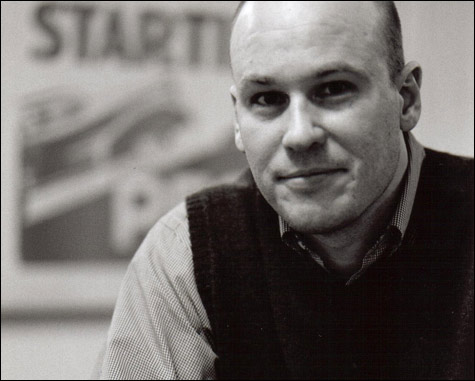
METAL HEAD: No reason someone who loves Mastodon shouldn’t love Monk, Ratliff reasons. |
WFNX Jazz Brunch Top Five
1. Paul Shapiro, Essen [Tzadik]
2. Lake Street Dive | Promises, Promises [FYO Records]
3. Will Bernard | Blue Plate Special [Palmetto]
4. Christian Scott | Live at Newport [Concord]
5. Buena Vista Social Club | At Carnegie Hall [Nonesuch] |
I've already reviewed Darrell Katz's exciting new album with the Jazz Composers Alliance Orchestra, The Same Thing (Cadence), but I still have some questions for him. And besides, it's been a few years. When we get together at the Starbucks across from Berklee, I ask about "December 30, 1994," which is about that day's murders at a Brookline women's health clinic, with a text by Paula Tatarunis. In the midst of general mayhem, Rebecca Shrimpton begins to sing a lovely tune: "Who will keep the homefires burning/While out you go/To your deathcamps gunshops/Wars and penitentiaries." It's a fleeting moment, but jarring, memorable."Something about those lines reminded me of a standard," Katz says. (It turned out to be Cole Porter's "You'd Be So Nice To Come Home To.") "So okay, here's this thing about death camps and gun shops and somehow I come up with this pretty little melody. So I said, 'Okay, fine, I'm going to trust my instincts — this is the totally wrong music for this, but therefore it will be good.' I'm hardly the only person who's thought of that."

The JCA has been at it since 1985, a collective of musicians who are primarily composers rather than players, in need of an outlet to hear their pieces. Over the years, they've also played with or commissioned new work from the likes of Marty Ehrlich, Julius Hemphill, Dave Holland, Sam Rivers, and Maria Schneider. Meanwhile, the 18-piece JCA Orchestra has always drawn from the ranks of the best players in town. All of the pieces on The Same Thing are by Katz (that includes his arrangement of Willie Dixon's title tune), but most of the JCA concerts and discs are multi-composer affairs. This Saturday night at Emmanuel Church, the JCAO will play pieces by Katz, Jim Hobbs, Bob Pilkington, Warren Senders, and Norm Zocher.
Katz has been working with text more and more over the years. "It gives me a place to start. A poem gives shape and direction to the process." The starting point for "December 30, 1994" was the last lines: "Words do kill/And kill and kill again." "It was a really angry poem, and when I got to that last line, I just instantly thought I could make this poem a piece of music."
It helps that Tatarunis is Katz's wife, an immediate source of inspiration. She wrote the lyrics for his "improvisational cantata" The Death of Simone Weil, and she provides two more texts on the new CD, the narcissistic flip-off "I'm Me and You're Not Ha Ha" and the George W. Bush flip-off "Lemmings." The other key is Shrimpton, who can move smoothly from spoken-word to sung lyrics to improvised wordless vocals.
The Same Thing is politically tinged, often rawly expressionistic, but Katz's skill for orchestration and rhythmic shifts keeps it aloft. His "Like a Wind," with a text from Sherwood Anderson's Winesburg, Ohio, flows the most easily; it's dreamlike and, like the other pieces with text, more art song than pop song, vocal and instrumental passages alternating in a freely written structure. Then there's "Everybody Loves Ray Charles," one of those scraps of composition he had lying around, reluctant to use it because he couldn't write himself out of its simple I-IV chord progression. "I wrote various versions in a much hipper harmonic language — but they always sucked!" When Ray Charles died and the JCA decided to perform a memorial concert, the piece emerged, with bits of "What I Say" call-and-response and some of Katz's most exuberant writing.
For his new The Jazz Ear: Conversations over Music (Times Books), New York Times critic Ben Ratliff has adapted his "Listening With" series from the paper, revising and rewriting, sometimes expanding the articles to two or three times their original length, "with more talking but also more context," he tells me from LA, on the road working the book.
The idea behind those pieces was to get away from the standard "news peg" profile based on an artist's latest release. Instead, Ratliff asked musicians to get together some recordings — not their desert-island discs, not their top five, just music they'd be interested in talking about. He asked them to clear an afternoon — three or four hours.
The musicians are often wildly impressionistic, in a way that most jazz critics would avoid. "I really really wanted that," he says. "One reason was to redress the constant complaint from musicians that all jazz critics do is reduce reduce reduce and end up misinterpreting and spreading all kinds of wrong information about music. I wanted to get musician talk in there that isn't play-by-play clinical analysis but more based on emotion and gesture and feeling."